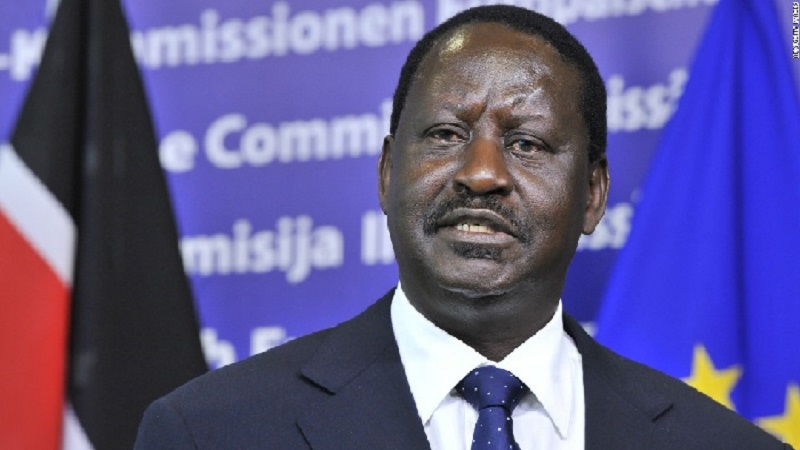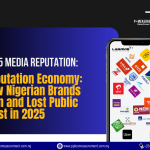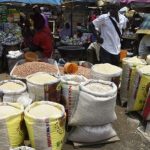Feature/OPED
Geopolitical Changes, African Union Reforms and Election of Next AU Commission’s Chairperson
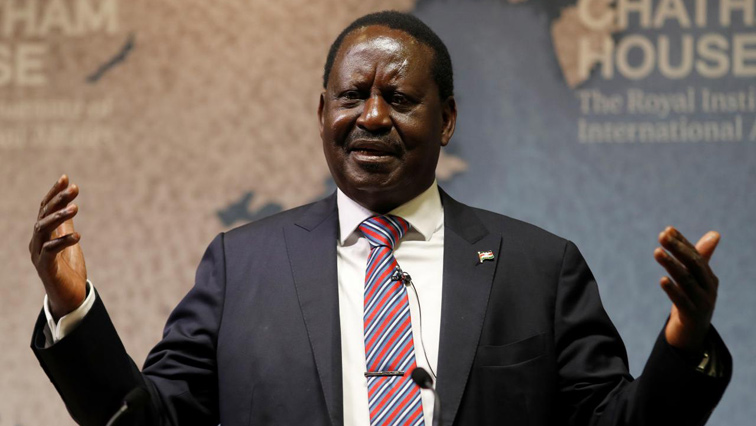
By Professor Maurice Okoli
The African Union, a continental organisation, is heading for a new traditional face within the framework of its guiding principles. That new forthcoming era would open a new chapter and, to a large degree, determine the future of Africa, especially taking cognizance of the current global changes. In less than a year since the expiration of the African Union Chairperson’s position, an advanced search for the next candidate has begun. As stipulated by the organization’s constitution, the candidate for the powerful position is normally elected. It is tentatively planned to choose the fifth Chairperson to succeed incumbent Chairperson Moussa Faki, whose second term of office ends in February 2025.
The majority of African leaders have spoken of unprecedented reforms, carrying out a significant internal shake-up, and new blood to be pumped into the current African Union leadership and its related allied institutions. Arguments for several changes are necessary to make the continental organisation work more effectively and produce tangible results, especially now within the context of global reconfiguration. Africa is too diverse to fit together. But there are many more interests in uniting the continent. But the political, economic, and cultural diversities have to be transformed into continental strength to ensure development and growth, instead of a noticeable display of weaknesses and passive actions. It is often repeatedly claimed that the African Union needs urgent realistic reforms and some kind of rebranding of its structure as an effective instrument for rapid development, new economic architecture, and substantial growth.
In late January, Rwandan President Paul Kagamé was appointed to lead the AU institutional reform process. It was an important step towards implementing its institutional reforms, setting the Pan-African organisation’s objectives under the leadership of the Heads of State, who meet once a year at the Assembly. As Africa faces a multitude of crises, unstoppable debates have also dominated inside Africa and on international platforms over the performance of the 55-member organisation, its existing challenges, and the way forward in the fast-changing world.
A media report released on March 3, 2024, titled “Museveni Endorses Raila Odinga’s AU Chairperson Bid” and circulated in the East African region showed the publicity campaign and erratic steps taken to promote Kenyan Raila Odinga to take over as Chairman of the AU Commission. Interestingly, Raila Odinga, Kenya’s opposition leader, has readily accepted Ugandan President Yoweri Museveni’s endorsement of his candidature for African Union Commission chairperson.
In a flagship statement posted via his social media platforms, Odinga said Museveni endorsed him during a joint meeting with President William Ruto. The Azimio alliance’s leader stated that the joint meeting with President Museveni and President Ruto was organized at the Ugandan president’s invitation.
“I accepted an invitation from President Yoweri Kaguta Museveni of Uganda for a joint meeting with President William Samoei Ruto. President Museveni strongly endorsed my candidature for Chairperson of the African Union Commission,” said Odinga, showing appreciation for William Ruto for fully supporting his candidature.
The trio also discussed the AU platform for deepening regional integration within the East African Community. Apart from Presidents Ruto and Museveni, other state heads who threw their invaluable weight behind the former Prime Minister are Samia Suluhu (Tanzania), Cyril Ramaphosa (South Africa), Salva Kiir (South Sudan), and Felix Tshisekedi of the Democratic Republic of the Congo. In addition, former Nigerian President Olusegun Obasanjo also endorsed Odinga, saying he is the best candidate to replace the outgoing chair, Moussa Faki.
Raila Odinga has an unmistakable political influence. He was born into a modest political family and grew up in politics. His profound perspectives suggest he operates as a pivotal figure within power dynamics, and his decision-making capacity is perceived as absolutely pragmatic. Odinga, most observers say, possesses an assertive leadership style and always expresses a steadfast interest in the complexity of a development-oriented society. These leadership skills echo his deep-seated affection for a genuine communal, regional, and continental tradition. Odinga as a suitable candidate underscores the perfect choice to embrace and settle for the best administrator for Africa.
Nevertheless, an insight into the choice and nomination of possible candidates is fraught with intrigue and nepotism. But at a glance, Odinga envisions carving out a new, distinctive image for the African Union. His high-value knowledge and experiences, corporate business entrepreneurialism, and pragmatic new economic development thinking would probably save Africa. Narratives too indicated that Odinga would adopt a far-reaching overhauled approach and take unshakable measures towards the most significant issues across Africa. These are essential conditions for re-imaging the AU’s future.
As the history of the stipulated procedures indicates, the elected chairperson becomes the head of the African Union Commission. For instance, on January 30, 2017, after seven rounds of voting, Chad’s Moussa Faki Mahamat was elected chairperson over Nigeria’s Amina Mohamed. He was re-elected in 2021 for another four-year term, which ends in 2025. Moussa Faki Mahamat, born on June 21, 1960, was first elected as the African Union Commission (AUC) Chairperson on January 30, 2017, and assumed office in March 2017. He served previously as State Minister of Foreign Affairs for the Republic of Chad.
According to official documents researched, the Chairperson of the AUC is the Chief Executive Officer, the legal representative of the AU, and the Commission’s Chief Accounting Officer. The Chairperson of the Commission is elected by the Assembly for a four-year term, renewable once.
In broad terms, the Chairperson’s functions include overall responsibility for the Commission’s administration and finances; promoting and popularising the AU’s objectives and enhancing its performance; consulting and coordinating with key stakeholders like member states, development partners, and Regional Economic Communities (RECs); appointing and managing the Commission’s staff; and acting as a depository for all AU and OAU treaties and legal instruments.
The African Union (AU) under Moussa Faki Mahamat has made several achievements, including raising the continental external relations profile and its ascension into the Group of Twenty (G20). In September 2023, when Prime Minister Narendra Modi of India chaired the G20 summit, the G20 nations agreed to grant the African Union permanent membership status in an appreciable move aimed at offering the continent a stronger voice on important questions and to uplift its status on a higher stage. In its final declaration in New Delhi, the G20 granted the African Union full membership. The G20 consists of 19 countries and the European Union, making up about 85 percent of the global GDP and two-thirds of the world’s population.
New Delhi is also counting on earning high-profile PR points to burnish its reputation as a Global South leader. In an article published in Indian and foreign newspapers ahead of the summit, Modi wrote, “Our presidency has not only seen the largest-ever participation from African countries but has also pushed for the inclusion of the African Union as a permanent member of the G20.”
Under Moussa Mahamat’s African Continental Free Trade Area (AfCFTA), the single continental market has the potential to unite an estimated 1.4 billion people in a $2.5 trillion economic bloc. The AfCFTA opens up tremendous opportunities for both local African and foreign investors from around the world.
January 1, 2021, signaled the commencement of Africa’s journey to market integration after it was postponed by six months in 2020 following the outbreak of the coronavirus pandemic. But its huge potential, which cannot be underestimated, is to generate a range of benefits through supporting trade creation, structural transformation, productive employment, and poverty reduction.
It aims at making Africa the largest common market in the world and accelerating continental integration. It is expected to reinforce the measures taken in terms of the free movement of persons, goods, and services across borders. But much depends on the collective determination and solidarity demonstrated by African leaders to face the challenges in a united and resolute manner. It depends on the strong mobilization of African leaders and the effective coordination provided by the African Union.
For this to be successful, Africa has to engage in modernising agriculture and strengthening agro-food systems by working towards its food security rather than simply accepting food packages as ‘gifts’ from so-called external friends. The next stage is to industrialise, add value to the agricultural products by processing them, and finally distribute them locally and for exports, hence the establishment of the AfCFTA. From this concrete perspective will emerge a new Africa, “the Africa we want,” which has understandably become the resounding guiding slogan.
Despite that, there have also been several critical assessments and careful analyses of developments over the past few years. The AU has made scathing remarks on the negative impacts inflicted by imperialism, neocolonialism, and Western hegemony. And further consistently called for calling for a complete overhaul of the multinational financial system to enable the pursuit of needed development goals across Africa. Paradoxically, Africa has huge resources, both natural and human, but the larger size of its population still lives in abject poverty and desperation.
At least a majority of African leaders on their side recognised the need to reform the continental organisation too. It has allegedly been manipulated by external powers, and to a large extent, internal deficiencies and weaknesses are still persistent on the continent. These include the absence of the fundamentals of democracy, good governance, transparency, and accountability, primarily due to weak institutions and ineffective organs of the state, especially the parliaments. Opposition groups are stifled, putting democracy at risk across Africa.
Rising ethnic conflicts, political-economic instability, and military appearance in politics. These have sparked widespread mass protests. Burkina Faso, Chad, Guinea, Gabon, Mali, and Niger are run by military officers. Then there was instability in Libya, Somalia, Sudan, and the Democratic Republic of the Congo (DRC). The biggest vulnerabilities include the proliferation of weapons, weak border control, and unprotected industrial facilities. The inevitable impact on the achievement of Sustainable Development Goals.
Researchers say the African Union should dedicate this year to solving the various issues of instability and restoring credibility in the democratic process. Non-constitutional changes of government have multiplied in total defiance of the entire political and legal system on which the organization was founded. Never since the creation of the African Union has there been such a large number of transitions following unconstitutional changes of government in Africa. (See African Leaders Extraordinary Summit report, February 2024.)
Set up more than two decades ago, the 55-member bloc has long been criticized for being ineffectual and for taking little decisive action in the face of numerous power grabs. Some 19 presidential or general elections are scheduled on the continent in 2024, portending more challenges for the AU.
Seemingly, there is a necessity to navigate a new dynamic development paradigm within the context of multipolar relations. The multifaceted nature of obstacles has to be addressed with a spirit of vigour and valuable perspectives. There are three main directions: democracy and good governance, food security and industrialization, and economy and trade. These could lead to social inclusion and broadening employment for the youth and the next generation. They could also lead to economic growth, stability, and better life conditions across Africa. All aspects of Africa’s development are incorporated into the joint report published at the African Economic Conference 2022.
In a nutshell, the African Union and African leaders have to realign their foreign policies and back away from geopolitical insinuations, rather than take advantage of the complexities and confrontations to look for substantive opportunities to support their efforts in pursuit of building better. The beauty of Africa lies not only in its economic potential but also in its vibrant and diverse cultures.
However, it would be remiss to discuss Africa’s economic growth without addressing the challenges that persist. Poverty, inequality, and a lack of infrastructure continue to hinder progress. It is our collective responsibility to work towards addressing these issues, ensuring that the benefits of Africa’s economic growth are inclusive and sustainable.
Notwithstanding the questions raised above, Moussa Faki Mahamat has spoken of “worrying trends” during these past few years at high-level conferences and meetings, characterising the main challenges “as political instability, climate change, poverty, deficits in economic governance, and marginalisation of women and young people in development and leadership.” Another major subject of discussion has been how the AU will transition to relying on African states to fund most of its budget rather than foreign donors. For instance, the UN Security Council in December adopted a resolution to finance AU-led peace missions but capped it at 75 percent of the budget.
The 37th AU Ordinary Session of the Assembly of Heads of State and Government, at the annual convention in February 2024, stressed the necessity for practical long-term strategies and to strengthen efforts at achieving peace and stability on the continent and to attain the 2030 Agenda for Sustainable Development and AU Agenda 2063. The AU Agenda 2063 is a comprehensive development framework for Africa.
The significant aspect of the retreat was the valuable discussions on the reform agenda. The reform agenda emphasises the need to focus on key priorities with a continental scope, realigning AU institutions to deliver on its objectives, operational efficiency, and sustainable self-financing of the Union. The retreat also reviewed the second ten-year plan of Agenda 2063, which spans from 2024 to 2033.
In the context of a multipolar geopolitical order, African leaders and the African Union should strengthen their positions regarding external partnerships. The African Union has to take up the task of developing collective approaches to the problems of maintaining peace and security, strengthening democratic processes, developing human potential, and ensuring socio-economic growth. If not, the continent risks being left behind and used as a pawn in an increasingly divided global order.
The African Union has, in a parallel direction, spearheaded Africa’s development and integration in close collaboration with African Union Member States, the Regional Economic Communities, and African citizens. The AU’s vision is to accelerate progress towards an integrated, prosperous, and inclusive Africa, at peace with itself, playing a dynamic role in the continental and global arenas, effectively driven by an accountable, efficient, and responsive Commission. These are incorporated into a single continental development program referred to as the AU Agenda 2063.
Professor Maurice Okoli is a fellow at the Institute for African Studies and the Institute of World Economy and International Relations, Russian Academy of Sciences. He is also a fellow at the North-Eastern Federal University of Russia. He is an expert at the Roscongress Foundation and the Valdai Discussion Club.
As an academic researcher and economist with a keen interest in current geopolitical changes and the emerging world order, Maurice Okoli frequently contributes articles for publication in reputable media portals on different aspects of the interconnection between developing and developed countries, particularly in Asia, Africa, and Europe. With comments and suggestions, he can be reached via email: markolconsult (at) gmail (dot) com.
Feature/OPED
If Capital is the Answer, What Exactly is the Problem with First Holdco?

By Blaise Udunze
The Olayemi Cardoso-led Central Bank of Nigeria’s 24-month compliance timeline for the recapitalization of Nigeria’s banking system is about to conclude on March 31, 2026, which is framed as an unavoidable solution to systemic fragility, weak balance sheets, and the demands of a larger, more complex economy. Bigger capital, regulators argue, will produce stronger banks. Though First Bank may have met the CBN’s N500 billion minimum requirement, the latest financials from Femi Otedola-led First HoldCo Plc, which is the parent of Nigeria’s oldest commercial bank, offer a sobering counterpoint, revealing that capital alone cannot cure structural weakness, governance failure, or deep-rooted risk management flaws. If capital is the answer, what exactly is the problem?
What is truly astonishing to many is that beneath the headline growth in earnings lies a financial institution struggling with collapsing earnings quality, surging credit impairments, volatile fair-value exposures, and rising operating inefficiencies. First HoldCo’s numbers are not merely a company-specific disappointment; they are a mirror reflecting the deeper fault lines within Nigeria’s financial system and a warning that recapitalisation, in its current form, risks becoming another cosmetic reset rather than a genuine reform.
On the surface, the topline appears encouraging. The figures showed that gross earnings rose by 17.1 percent to N2.64 trillion in the nine months to 2025, while interest income surged by over 40 percent to N2.29 trillion. Figuring it out, investors, depositors, and analysts understand that these figures, however, are largely the product of a high-interest-rate environment driven by aggressive monetary tightening. They reflect repricing, not necessarily improved lending quality or superior balance-sheet strength. In an economy under strain, rising interest income often signals the transfer of macroeconomic stress from borrowers to banks, rather than sustainable growth.
This becomes evident once attention shifts from revenues to profitability. The performance disclosed that profit before tax declined by 7.3 percent to N566.5 billion, while profit after tax fell nearly 13 percent to N458 billion. Earnings per share dropped by a steep 27.7 percent, a sharper decline than headline profit suggests, pointing to dilution pressures and reduced value accruing to shareholders. More striking still is the full-year picture, where profit after tax from continuing operations collapsed by about 92 percent, plunging to N52.7 billion from N663.5 billion in the prior year. Such a dramatic fall cannot be explained by temporary volatility; it is the consequence of long-suppressed risks finally surfacing.
The most damaging of these risks is asset quality. The most critical figure is the impairment charges that rose by nearly 69 percent in the nine months to N288.9 billion, and by over 75 percent on a full-year basis to N748 billion, and invariably, these numbers tell a story of borrowers buckling under FX exposure, weak cash flows, and a deteriorating operating environment. They also raise uncomfortable questions about credit underwriting standards, concentration risk, and the effectiveness of internal risk controls in earlier lending cycles. After impairments, much of the benefit from higher interest income evaporated, exposing the fragility of earnings built on stressed credit.
Compounding this weakness was a sharp reversal in fair-value accounting. First HoldCo recorded a net loss of N87 billion on financial instruments measured at fair value, a stark contrast to the N549 billion gain recorded a year earlier. Due to this outcome, larger chunks of shareholders’ value were wiped out because this single swing accounted for a negative variance of over N636 billion year-on-year.
The episode highlights a dangerous dependence on market revaluations and FX-driven gains to prop up earnings, as seen that the moment conditions turn, paper profits vanish just as quickly, raising questions about the transparency, sustainability and economic substance of reported results.
Non-interest income provided little cushion. In the nine months to 2025, it declined by 44.5 percent, falling from N618.7 billion to N343.7 billion. While net fees and commission income rose by about 25 percent, the increase was too small to offset the collapse in other income lines. The result is a revenue base that is narrow, volatile, and overly exposed to market swings. Recapitalising banks without addressing this lack of income diversification simply amplifies vulnerability.
At the same time, operating costs surged. Operating expenses climbed by nearly 40 percent to N942.7 billion, while other operating expenses jumped over 43 percent on a full-year basis. Inflation, FX depreciation, energy costs, and technology spending all played a role, but the deeper issue is efficiency. Costs are rising far faster than sustainable income, eroding margins and weakening internal capital generation at precisely the moment banks are being asked to shore up capital buffers. Injecting fresh capital into institutions with broken cost structures does not resolve inefficiency; it merely postpones the inevitable days.
These financial stresses revive longstanding concerns about governance and risk culture in Nigeria’s banking system. Large impairment charges and valuation reversals do not emerge overnight. They accumulate through years of weak credit governance, excessive sector and obligor concentration, insider-related exposures, inadequate stress testing, and regulatory forbearance. Recapitalisation does not answer the most important questions: who gets credit, how risks are approved, how boards exercise oversight, and whether management is truly accountable. Without reform in these areas, more capital simply provides a thicker cushion for future losses.
Foreign exchange risk remains the system’s most dangerous and least resolved fault line. Currency devaluation inflates asset values and boosts interest income on paper, while simultaneously crushing borrowers with FX-denominated obligations. Banks may book translation or revaluation gains even as credit quality deteriorates beneath the surface. This contradiction fuels earnings volatility and undermines confidence in financial reporting. A stronger capital base does not neutralise FX mismatch risk; only disciplined risk management, credible macro policy, and transparent reporting can.
Perhaps most troubling is what First HoldCo’s results imply about regulatory credibility. Many of the impairments and valuation losses reflect risks that were visible long before they crystallised in the income statement. When losses arrive suddenly and in clusters, concerns from different quarters are raised and markets begin to question whether supervision is proactive or merely reactive. Recapitalisation without restoring trust in regulatory oversight risks being interpreted as an admission that deeper problems remain unaddressed and by extension, this erodes trust in the system and a stronger banking sector must also be a fairer and more accountable one.
Nigeria has travelled this road before. Bigger banks and higher capital thresholds have previously delivered reassuring headlines, only for familiar weaknesses to resurface in new forms. First HoldCo’s numbers demonstrate that capital adequacy, while necessary, is far from sufficient. Without the CBN confronting governance failures, asset quality deterioration, concentration risk, FX exposure, transparency gaps, and weak risk culture, recapitalisation risks will become another exercise in delay rather than reform.
The uncomfortable truth is that real stability requires more than fresh equity. It demands honest loss recognition, credible financial reporting, disciplined credit practices, diversified income streams, and regulators willing to enforce standards consistently. Until these missing pieces are addressed, recapitalisation will remain what it too often has been in Nigeria’s financial history, as a larger buffer for the same old problems, and a temporary comfort masking unresolved fragilities.
Blaise, a journalist and PR professional, writes from Lagos, can be reached via: [email protected]
Feature/OPED
Why the Future of PR Depends on Healthier Client–Agency Partnerships
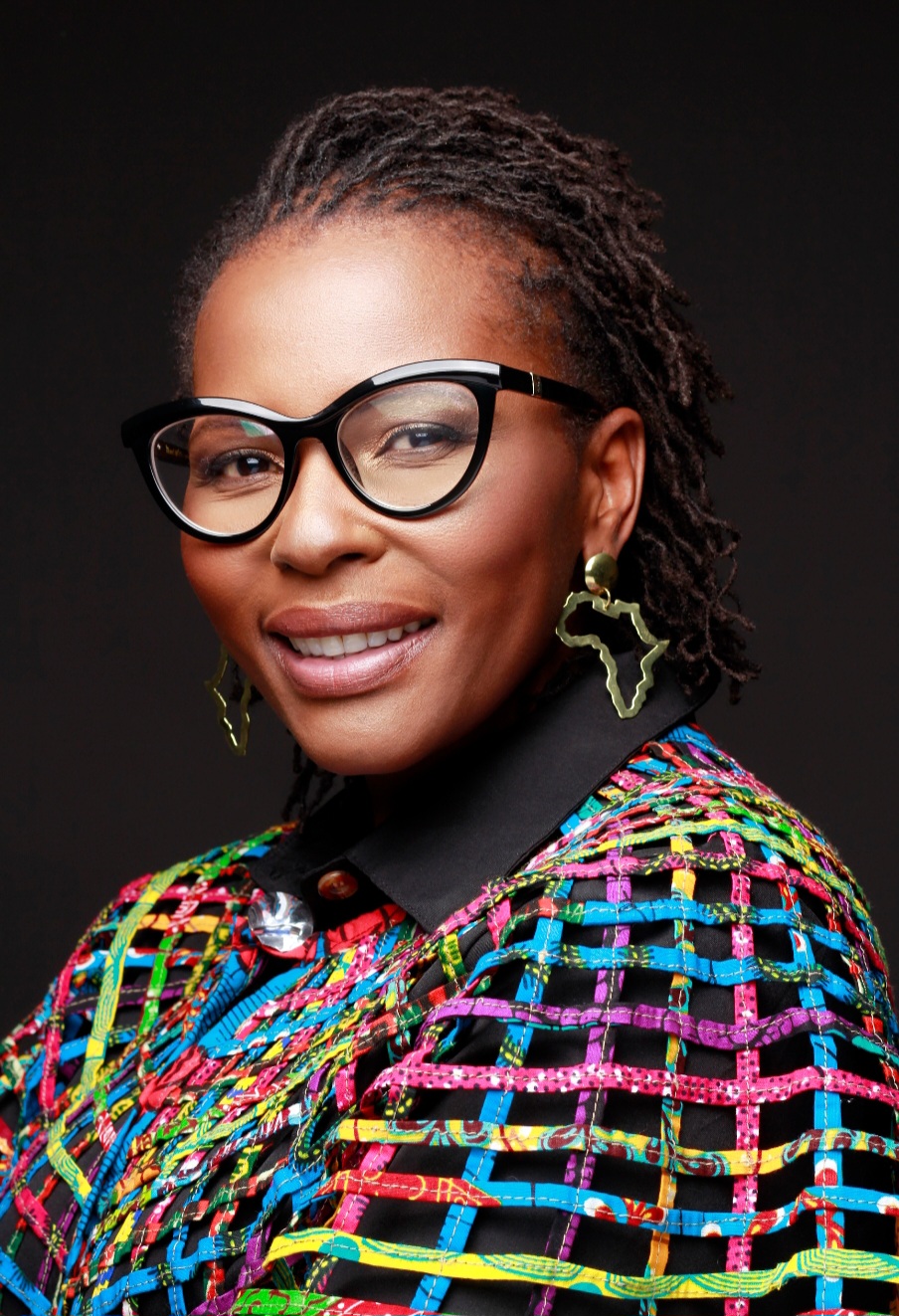
By Moliehi Molekoa
The start of a new year often brings optimism, new strategies, and renewed ambition. However, for the public relations and reputation management industry, the past year ended not only with optimism but also with hard-earned clarity.
2025 was more than a challenging year. It was a reckoning and a stress test for operating models, procurement practices, and, most importantly, the foundation of client–agency partnerships. For the C-suite, this is not solely an agency issue.
The year revealed a more fundamental challenge: a partnership problem that, if left unaddressed, can easily erode the very reputations, trust, and resilience agencies are hired to protect. What has emerged is not disillusionment, but the need for a clearer understanding of where established ways of working no longer reflect the reality they are meant to support.
The uncomfortable truth we keep avoiding
Public relations agencies are businesses, not cost centres or expandable resources. They are not informal extensions of internal teams, lacking the protection, stability, or benefits those teams receive. They are businesses.
Yet, across markets, agencies are often expected to operate under conditions that would raise immediate concerns in any boardroom:
-
Unclear and constantly shifting scope
-
Short-term contracts paired with long-term expectations
-
Sixty-, ninety-, even 120-day payment terms
-
Procurement-led pricing pressure divorced from delivery realities
-
Pitch processes that consume months of senior talent time, often with no feedback, timelines, or accountability
If these conditions would concern you within your own organisation, they should also concern you regarding the partner responsible for your reputation.
Growth on paper, pressure in practice
On the surface, the industry appears healthy. Global market valuations continue to rise. Demand for reputation management, stakeholder engagement, crisis preparedness, and strategic counsel has never been higher.
However, beneath this top-line growth lies the uncomfortable reality: fewer than half of agencies expect meaningful profit growth, even as workloads increase and expectations rise.
This disconnect is significant. It indicates an industry being asked to deliver more across additional platforms, at greater speed, with deeper insight, and with higher risk exposure, all while absorbing increased commercial uncertainty.
For African agencies in particular, this pressure is intensified by factors such as volatile currencies, rising talent costs, fragile data infrastructure, and procurement models adopted from economies with fundamentally different conditions. This is not a complaint. It is reality.
This pressure is not one-sided. Many clients face constraints ranging from procurement mandates and short-term cost controls to internal capacity gaps, which increasingly shift responsibility outward. But pressure transfer is not the same as partnership, and left unmanaged, it creates long-term risk for both parties.
The pitching problem no one wants to own
Agencies are not anti-competition. Pitches sharpen thinking and drive excellence. What agencies increasingly challenge is how pitching is done.
Across markets, agencies participate in dozens of pitches each year, with success rates well below 20%. Senior leaders frequently invest unpaid hours, often with limited information, tight timelines, and evaluation criteria that prioritise cost over value.
And then, too often, dead silence, no feedback, no communication about delays, and a lack of decency in providing detailed feedback on the decision drivers.
In any other supplier relationship, this would not meet basic governance standards. In a profession built on intellectual capital, it suggests that expertise is undervalued.
This is also where independent pitch consultants become increasingly important and valuable if clients choose this route to help facilitate their pitch process. Their role in the process is not to advocate for agencies but to act as neutral custodians of fairness, realism, and governance. When used well, they help clients align ambition with timelines, scope, and budget, and ensure transparency and feedback that ultimately lead to better decision-making.
“More for less” is not a strategy
A particularly damaging expectation is the belief that agencies can sustainably deliver enterprise-level outcomes on limited budgets, often while dedicating nearly full-time senior resources. This is not efficiency. It is misalignment.
No executive would expect a business unit to thrive while under-resourced, overexposed, and cash-constrained. Yet agencies are often required to operate under these conditions while remaining accountable for outcomes that affect market confidence, stakeholder trust, and brand equity.
Here is a friendly reminder: reputation management is not a commodity. It is risk management.
It is value creation. It also requires investment that matches its significance.
A necessary reset
As leadership teams plan for growth, resilience, and relevance, there is both an opportunity and a responsibility to reset how agency partnerships are structured.
That reset looks like:
-
Contracts that balance flexibility and sustainability
-
Payment terms that reflect mutual dependency
-
Pitch processes that respect time, talent, and transparency for all parties
-
Scopes that align ambition with available budgets
-
Relationships based on professional parity rather than power imbalance
This reset also requires discipline on the agency side – clearer articulation of value, sharper scoping, and greater transparency about how senior expertise is deployed. Partnership is not protectionism; it is mutual accountability.
The Leadership Question That Matters
The question for the C-suite is quite simple:
If your agency mirrored your internal standards of governance, fairness, and accountability, would you still be comfortable with how the relationship is structured?
If the answer is no, then change is not only necessary but also strategic. Because strong brands are built on strong partnerships. Strong partnerships endure only when both sides are recognised, respected, and resourced as businesses in their own right.
The agencies that succeed and the brands that truly thrive will be those that recognise this early and act deliberately.
Moliehi Molekoa is the Managing Director of Magna Carta Reputation Management Consultants and PRISA Board Member
Feature/OPED
Directing the Dual Workforce in the Age of AI Agents
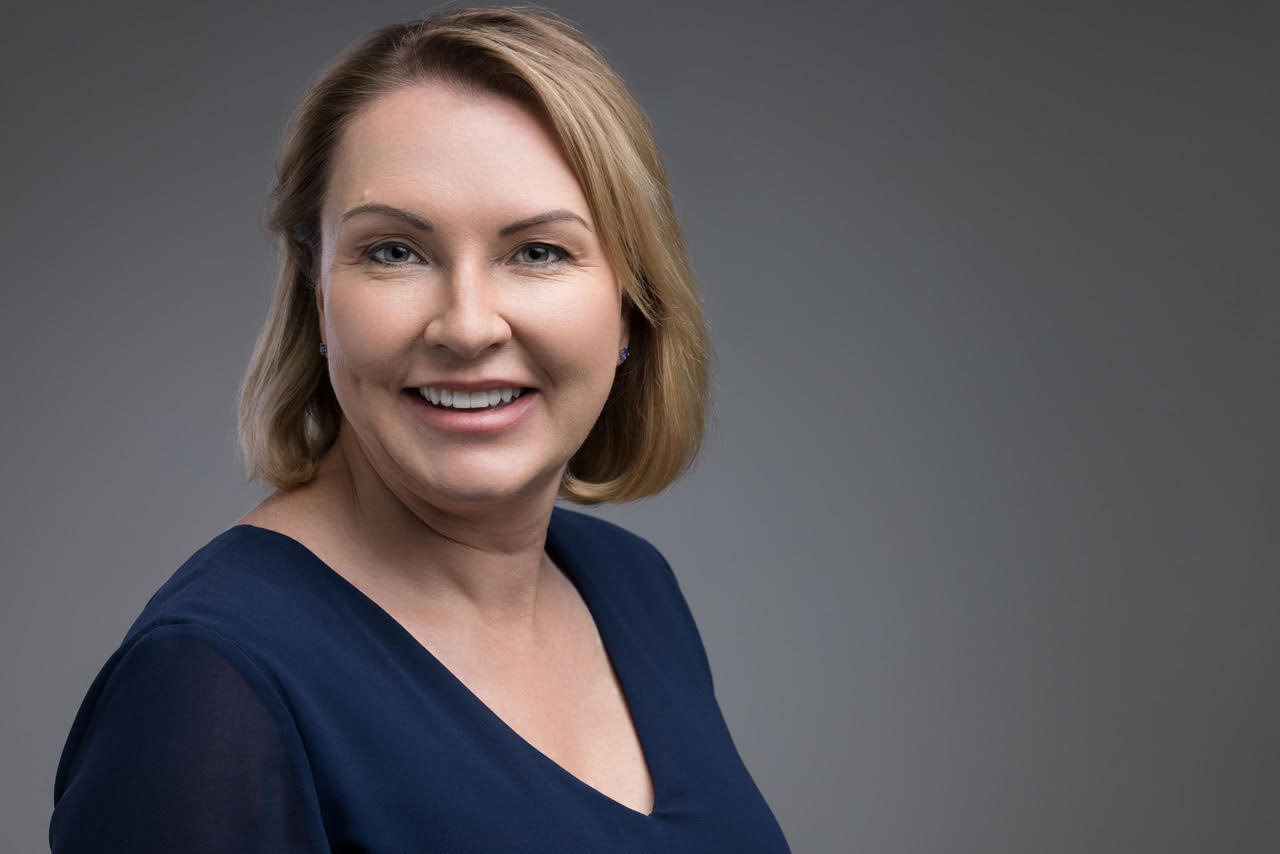
By Linda Saunders
We will be the last generation to work with all-human workforces. This is not a provocative soundbite but a statement of fact, one that signals a fundamental shift in how organisations operate and what leadership now demands. The challenge facing today’s leaders is not simply adopting new technology but architecting an entirely new operating model where humans and autonomous AI agents work in concert.
According to Salesforce 2025 CEO research, 99% of CEOs say they are prepared to integrate digital labor into their business, yet only 51% feel fully prepared to do so. This gap between awareness and readiness reveals the central tension of this moment: we recognise the transformation ahead but lack established frameworks for navigating it. The question is no longer whether AI agents will reshape work, but whether leaders can develop the new capabilities required to direct this dual workforce effectively.
The scale of change is already visible in the data. According to the latest CIO trends, AI implementation has surged 282% year over year, jumping from 11% to 42% of organisations deploying AI at scale. Meanwhile, the IDC estimates that digital labour will generate a global economic impact of $13 trillion by 2030, with their research suggesting that agentic AI tools could enhance productivity by taking on the equivalent of almost 23% of a full-time employee’s weekly workload.
With the majority of CEOs acknowledging that digital labor will transform their company structure entirely, and that implementing agents is critical for competing in today’s economic climate, the reality is that transformation is not coming, it’s already here, and it requires a fundamental change to the way we approach leadership.
The Director of the Dual Workforce
Traditional management models, built on hierarchies of human workers executing tasks under supervision, were designed for a different era. What is needed now might be called the Director of the dual workforce, a leader whose mandate is not to execute every task but to architect and oversee effective collaboration between human teams and autonomous digital labor. This role is governed by five core principles that define how AI agents should be structured, deployed and optimised within organisations.
Structure forms the foundation. Just as organisational charts define human roles and reporting lines, leaders must design clear frameworks for AI agents, defining their scope, establishing mandates and setting boundaries for their operation. This is particularly challenging given that the average enterprise uses 897 applications, only 29% of which are connected. Leaders must create coherent structures within fragmented technology landscapes as a strong data foundation is the most critical factor for successful AI implementation. Without proper structure, agents risk operating in silos or creating new inefficiencies rather than resolving existing ones.
Oversight translates structure into accountability. Leaders must establish clear performance metrics and conduct regular reviews of their digital workforce, applying the same rigour they bring to managing human teams. This becomes essential as organisations scale beyond pilot projects and we’ve seen a significant increase in companies moving from pilot to production, indicating that the shift from experimentation to operational deployment is accelerating. It’s also clear that structured approaches to agent deployment can deliver return on investment substantially faster than do-it-yourself methods whilst reducing costs, but only when proper oversight mechanisms are in place.
To ensure agents learn from trusted data and behave as intended before deployment, training and testing is required. Leaders bear responsibility for curating the knowledge base agents access and rigorously testing their behaviour before release. This addresses a critical challenge: leaders believe their most valuable insights are trapped in roughly 19% of company data that remains siloed. The quality of training directly impacts performance and properly trained agents can achieve 75% higher accuracy than those deployed without rigorous preparation.
Additionally, strategy determines where and how to deploy agent resources for competitive advantage. This requires identifying high-value, repetitive or complex processes where AI augmentation drives meaningful impact. Early adoption patterns reveal clear trends: according to the Salesforce Agentic Enterprise Index tracking the first half of 2025, organisations saw a 119% increase in agents created, with top use cases spanning sales, service and internal business operations. The same research shows employees are engaging with AI agents 65% more frequently, and conversations are running 35% longer, suggesting that strategic deployment is finding genuine utility rather than novelty value.
The critical role of observability
The fifth principle, to observe and track, has emerged as perhaps the most critical enabler for scaling AI deployments safely. This requires real-time visibility into agent behaviour and performance, creating transparency that builds trust and enables rapid optimisation.
Given the surge in AI implementation, leaders need unified views of their AI operations to scale securely. Success hinges on seamless integration into core systems rather than isolated projects, and agentic AI demands new skills, with the top three in demand being leadership, storytelling and change management. The ability to observe and track agent performance is what makes this integration possible, allowing leaders to identify issues quickly, demonstrate accountability and make informed decisions about scaling.
The shift towards dual workforce management is already reshaping executive priorities and relationships. CIOs now partner more closely with CEOs than any other C-suite peer, reflecting their changing and central role in technology-driven strategy. Meanwhile, recent CHRO research found that 80% of Chief Human Resources Officers believe that within five years, most workforces will combine humans and AI agents, with expected productivity gains of 30% and labour cost reductions of 19%. The financial perspective has also clearly shifted dramatically, with CFOs moving away from cautious experimentation toward actively integrating AI agents into how they assess value, measure return on investment, and define broader business outcomes.
Leading the transition
The current generation of leaders are the crucial architects who must design and lead this transition. The role of director of the dual workforce is not aspirational but necessary, grounded in principles that govern effective agent deployment. Success requires moving beyond viewing AI as a technical initiative to understanding it as an organisational transformation that touches every aspect of operations, from workflow design to performance management to strategic planning.
This transformation also demands new capabilities from leaders themselves. The skills that defined effective management in all-human workforces remain important but are no longer sufficient. Leaders must develop fluency in understanding agent capabilities and limitations, learn to design workflows that optimally divide labor between humans and machines, and cultivate the ability to measure and optimise performance across both types of workers. They must also navigate the human dimensions of this transition, helping employees understand how their roles evolve, ensuring that the benefits of productivity gains are distributed fairly, and maintaining organisational cultures that value human judgement and creativity even as routine tasks migrate to digital labor.
The responsibility to direct what comes next, to architect systems where human creativity, judgement and relationship-building combine with the scalability, consistency and analytical power of AI agents, rests with today’s leaders. The organisations that thrive will be those whose directors embrace this mandate, developing the structures, oversight mechanisms, training protocols, strategic frameworks and observability systems that allow dual workforces to deliver on their considerable promise.
-

 Feature/OPED6 years ago
Feature/OPED6 years agoDavos was Different this year
-
Travel/Tourism9 years ago
Lagos Seals Western Lodge Hotel In Ikorodu
-

 Showbiz3 years ago
Showbiz3 years agoEstranged Lover Releases Videos of Empress Njamah Bathing
-

 Banking8 years ago
Banking8 years agoSort Codes of GTBank Branches in Nigeria
-

 Economy3 years ago
Economy3 years agoSubsidy Removal: CNG at N130 Per Litre Cheaper Than Petrol—IPMAN
-

 Banking3 years ago
Banking3 years agoSort Codes of UBA Branches in Nigeria
-

 Banking3 years ago
Banking3 years agoFirst Bank Announces Planned Downtime
-

 Sports3 years ago
Sports3 years agoHighest Paid Nigerian Footballer – How Much Do Nigerian Footballers Earn





